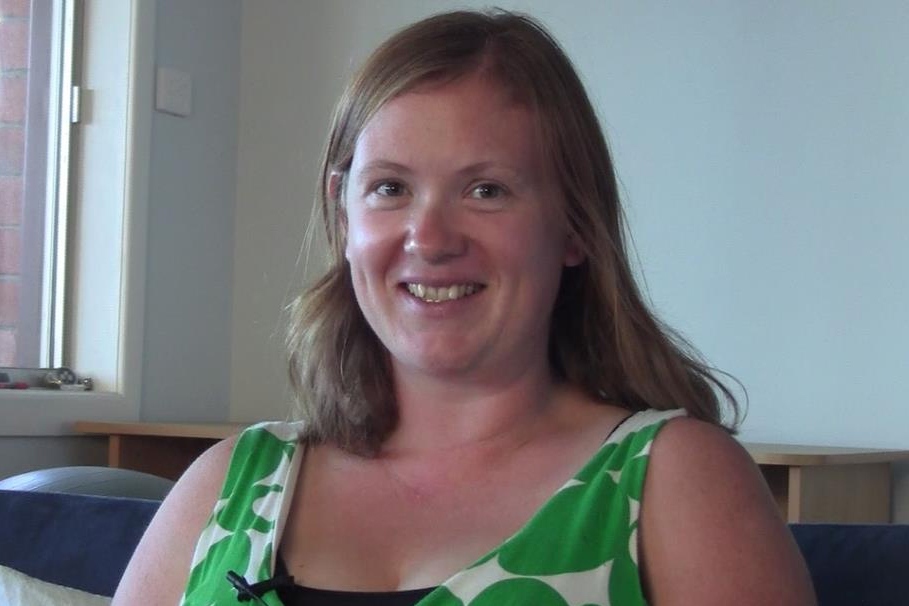
Name: Kirsty
Age at interview: 30
Gender: Female
Background: Kirsty lives with her partner and nine-month-old daughter in a regional town in Australia. She is from an Anglo-Australian background and is not currently working.
About Kirsty
Kirsty was experiencing problems at work when she fell pregnant, so decided to resign, then moved interstate with her partner. Her homebirth was 'an amazing experience', but she struggled with breastfeeding and sleep issues and sought counselling.
Clips from Kirsty's Interview
Hover over the dots along the player timeline or click the icon with three lines to the left of the fullscreen icon to see the name of the Talking Point the clip is from.
More about Kirsty
Kirsty worked for several years in corporate roles before meeting her partner. She described having had a 'strong biological urge' to have children, but her partner had 'mixed' feelings based on his experience of becoming a father in an earlier relationship. He was upset when he learned Kirsty was pregnant as they had not had a clear discussion about it. They both took time out to consider whether they were ready to become parents.
Kirsty described the pregnancy as 'very stressful' as both she and her partner had recently resigned from their jobs and were in the initial stages of setting up a new business. They had moved interstate and were living with Kirsty's partner's parents and had very little income or independence. Kirsty suffered sleep disturbances and was diagnosed with restless leg syndrome shortly before becoming pregnant, and so couldn't take medication for the condition. She felt exhausted and 'hungry around the clock.'
As the pregnancy progressed, Kirsty felt better and their homebirth was an 'amazing experience'. For the first few days after the birth, they felt 'six foot tall and bulletproof' as a result of delivering their baby themselves.
However, Kirsty then started experiencing problems breastfeeding and settling her baby, which she had not expected. When their daughter was 10 days old, Kirsty remembered trying to get her to sleep and changing endless nappies, and wondering 'what had happened' to her life.
At 12 days their daughter was hospitalised for jaundice and dehydration and given formula, which made Kirsty feel like 'a failure'.
Returning home, she tried to continue breastfeeding despite ongoing difficulties and her partner encouraging her to stop. Kirsty had intended to co-sleep with her baby, but this did not assist in settling her daughter.
Kirsty sought advice from others but didn't ask for help as she believed she could 'do it all' on her own. Presented with lots of conflicting and unsolicited advice, Kirsty mostly disregarded what didn't fit with her views. Her mother's support and understanding at this time was appreciated, as she could relate to most of what Kirsty was experiencing.
Kirsty described this period as a 'fog of not sleeping, arguing, crying.' Her partner struggled to understand how she was feeling and suggested she might have postnatal depression, but Kirsty thought she was just 'upset' and exhausted.
When her daughter was six months, Kirsty learned about Medicare-subsidised psychologists and asked her GP for a referral. Her first session was 'not very helpful' as she didn't connect with the psychologist, so she is now waiting to see a different one.
Kirsty feels that although their lives have changed dramatically, she and her partner are still trying to hold on to their dreams. She said if she had her time again, she would not have 'so many expectations for how I was going to do things' and be less judgmental of other parents. Her advice to others is that it really 'does take a village to raise a child' and to ask for support.
